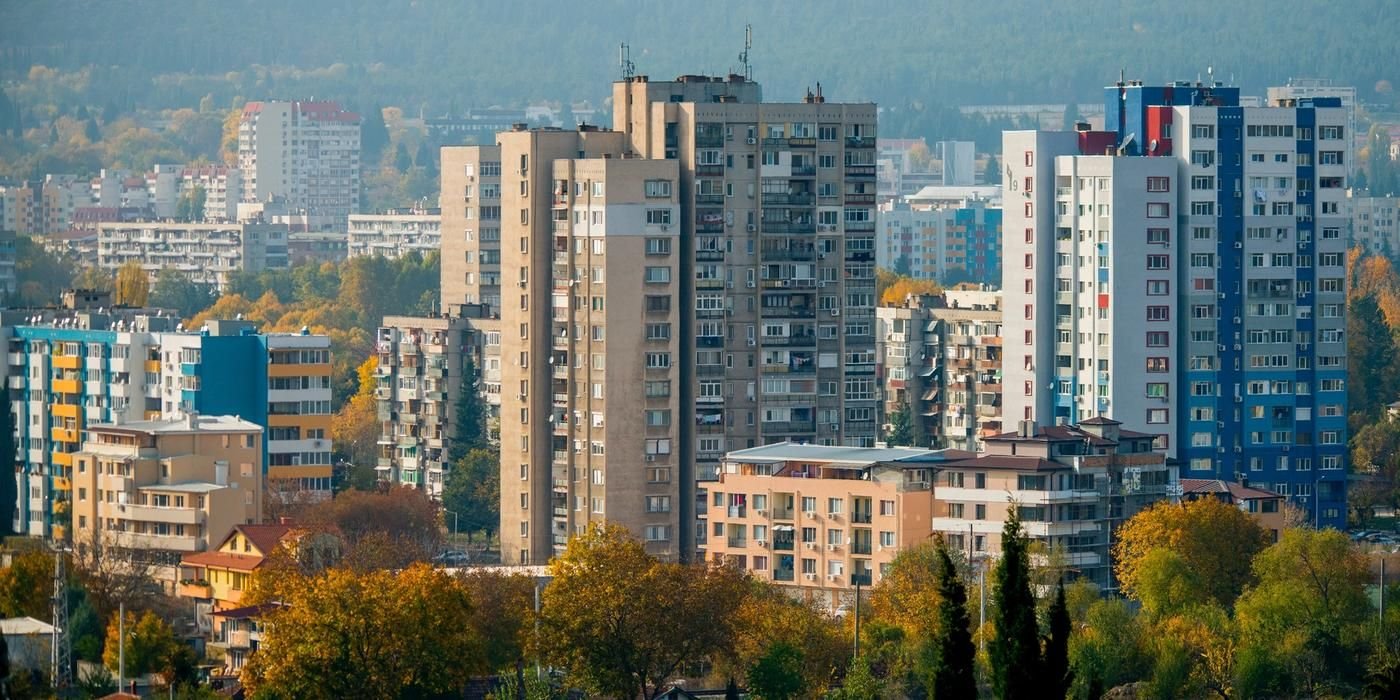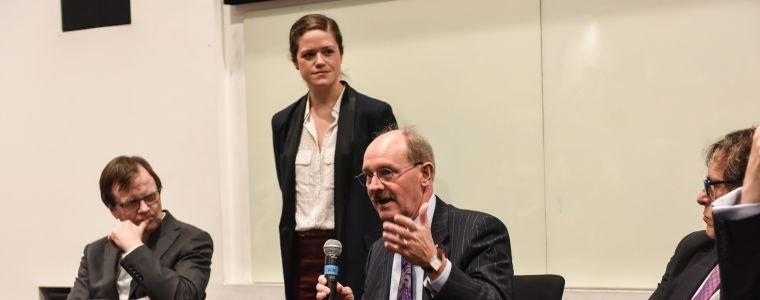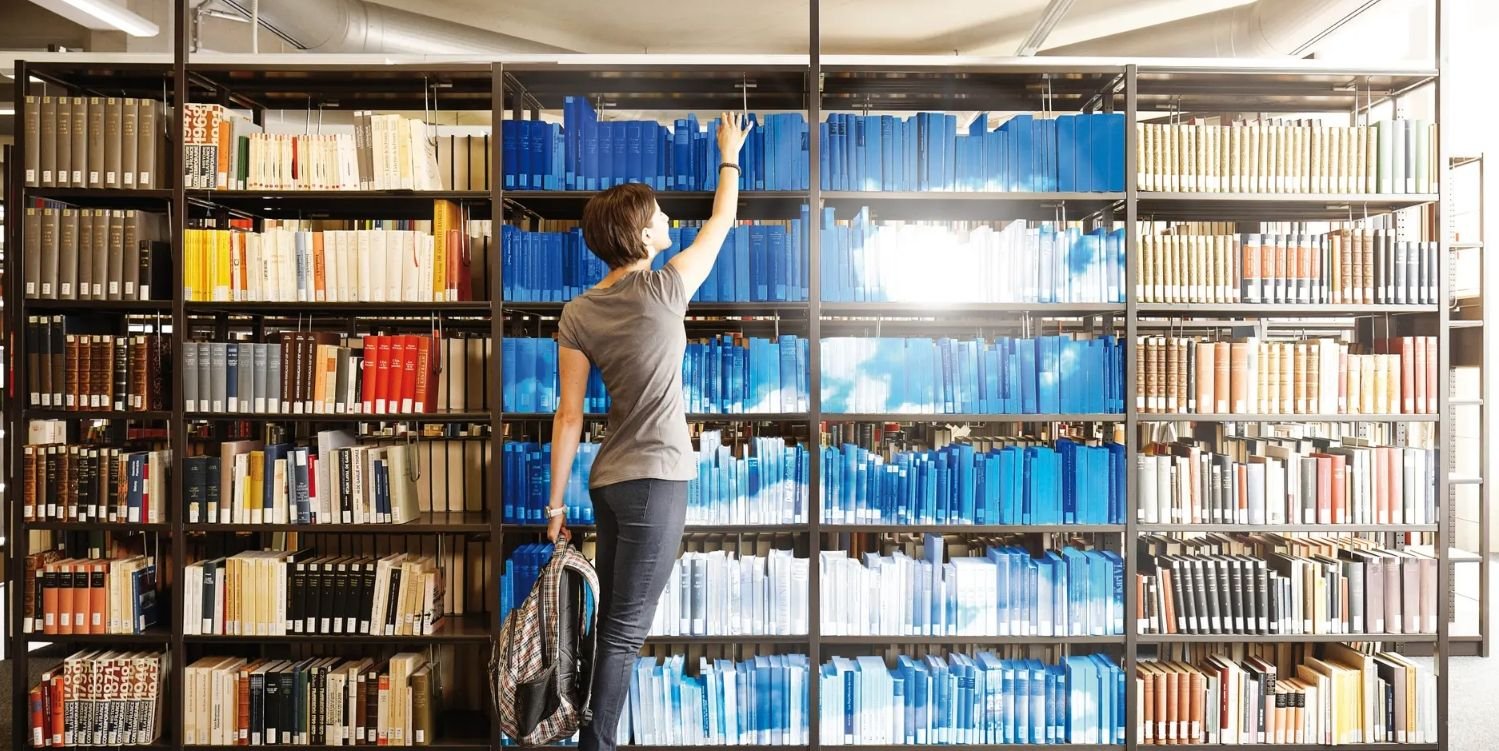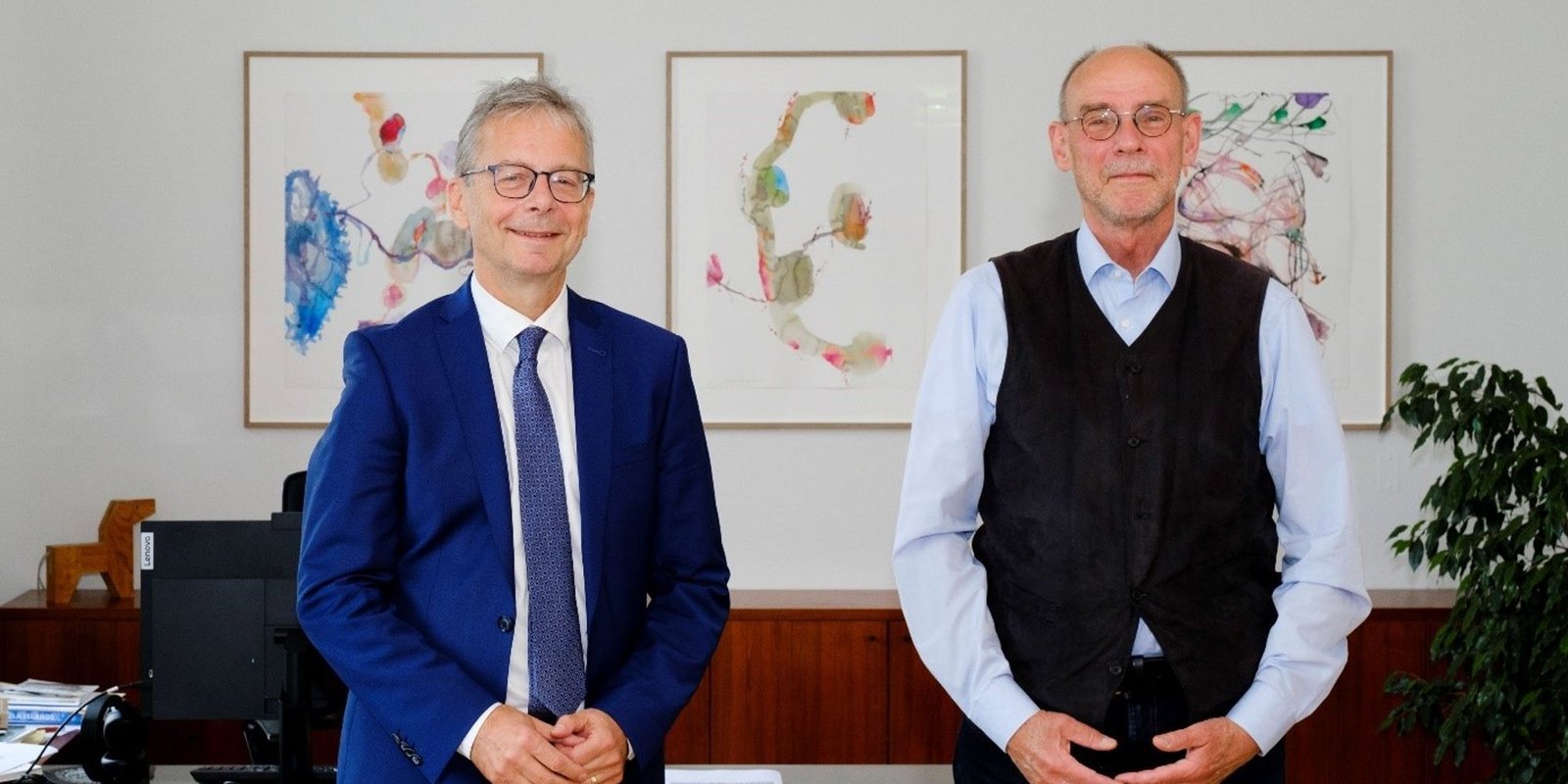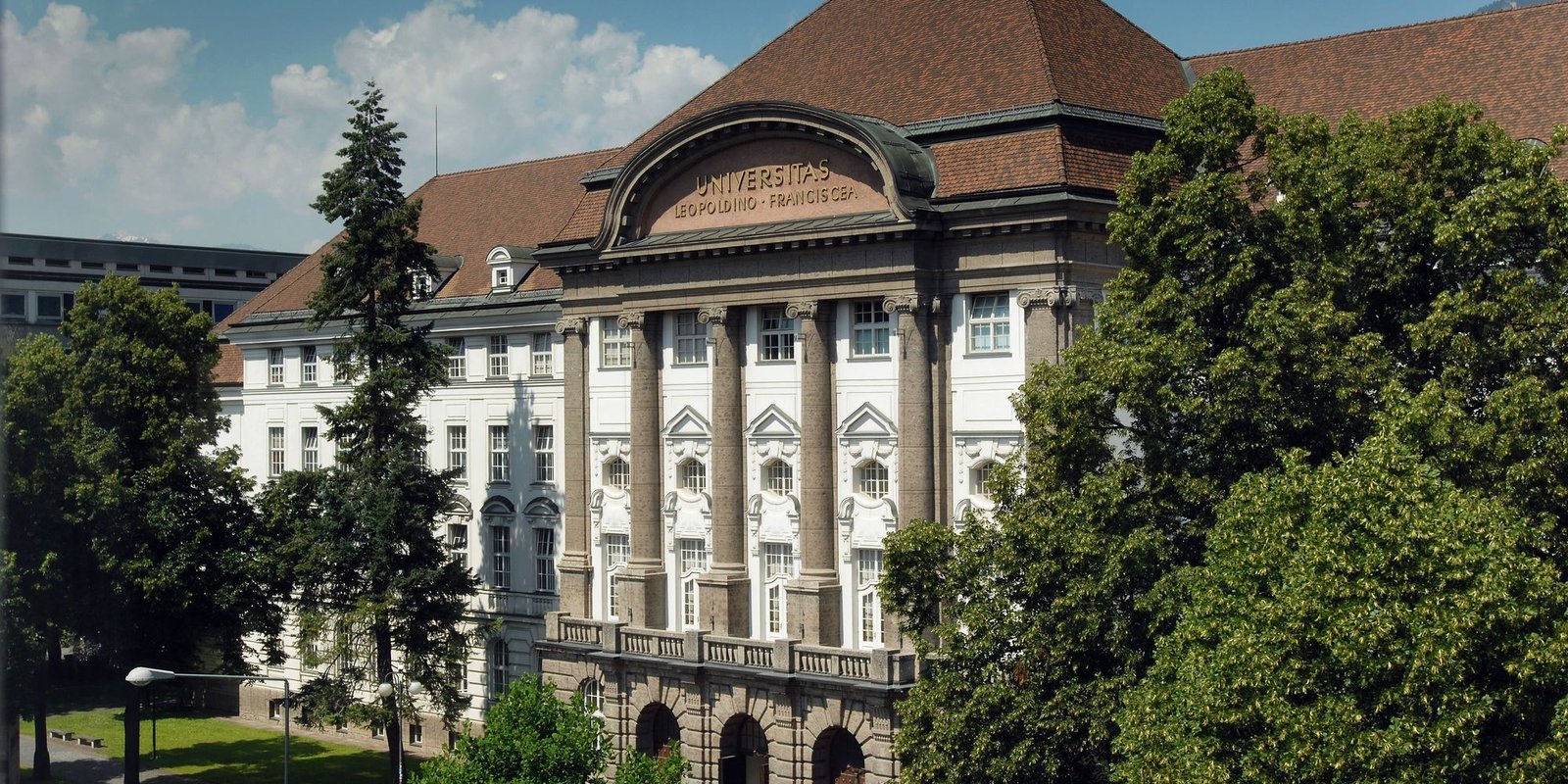Author: rostanetek
Mental Health at UEA and UIBK
Written by Emily Reeves, University of East Anglia, BA International Relations and Valerie Bauder, University of Innsbruck, BA Psychology
It seems almost obsolete to talk about the importance of friendships and being socially connected for mental health.
During this pandemic, most of us experienced a massive downturn in our social contacts. It is not insignificant that many students feel isolated and therefore more unhappy than before. As social creatures, we strongly crave new friendships, exchanges or even just something as simple as a hug.
Within the Aurora Student Champion scheme, the pen-pal activity connects two Aurora students from different institutions to facilitate the discussion of Aurora topics and events and communication between like-minded individuals. This activity led to the partnership and friendship between myself, Emily (UEA), and Valerie (UIBK). We chose to produce a piece of writing together comparing mental health at our institutions in the UK and Austria. From this, we decided to focus on friendship, how people socialise with one another, and why this is a positive thing.
Due to the pandemic, new students are less likely to meet new people. If they don’t get on particularly well with people they live with, they have no way of meeting other people through clubs, societies, or their courses; this limits their friendships and has arguably negatively impacted students’ mental health and wellbeing. Covid-19’s impact on people meeting others and forming friendships at university is something we were interested in exploring more deeply and comparing how our institutions have decided to tackle the issue.
At UEA, many people use Facebook groups to do things like advertise upcoming events or rooms which are available to rent. This year, there has been a new theme featured in these groups; advertising yourself to try and find friends. The past academic year has been difficult for everyone for various reasons, heavily impacting people’s ability to meet and interact with new people. Friendships at university are essential to good mental health. When students come to university, they establish friendships that encourage socialisation, get them out of their comfort zone, and provide a sense of belonging. Loneliness and alienation at university are detrimental to a student’s wellbeing, especially since mental health is already a big issue amongst them.
Students in university accommodation who have struggled to bond with their housemates have not been given the opportunity to meet new people in the same way as student’s pre-pandemic. In other circumstances, students would meet their housemates, the people living in accommodation around them, their coursemates, and members of societies or clubs. There were endless ways to meet new people pre-pandemic, but in the environment, we find ourselves in now, digitalised communication has been one of the only options. While this does offer a route to make friends, it is not personable. It is difficult to transmit emotions through written messages or over a video chat. Events to meet new people or find potential housemates and student-led programmes to help people settle into university life have provided a few possibilities. However, it is clear that those who started university this academic year have struggled.
In Innsbruck, it is also quite visible that emotional wellbeing has taken a hit during these times. At UIBK, the student counselling has been more sensitive to mental health-related topics noticing that students were increasingly demotivated and sad. On that matter, the ÖH (Austrian Student Union) in Innsbruck did a survey where they asked students about their mental health. Here, for example, they found out that 81% agreed or rather agreed to the statement, “I am currently listless and don’t manage to motivate myself to study very well.” And roughly 73% “agreed” or “rather agreed” to the statement that “The prospect of online lectures and virtual seminars/exercises lower my motivation to study.” And less than half say they felt happy at the moment. As of my own experience of those I heard from, many students felt like they had not much to look forward to, especially during the hard lockdown. Also, many students had to cancel their exchange programs, therefore, missing out on some valuable experiences meeting new people with different backgrounds and cultures. Although it cannot replace the scope of experiences that students would have had by studying abroad, there are possibilities to connect internationally anyways.
Aurora has helped students from multiple institutions come together across a digital space, make new friends, and form new connections. To be able to implement further the opportunity which Aurora presents for breaking traditional barriers to communication could be a great way to address the issues discussed. While we may be moving back to ‘normal’ in the UK with the lockdown easing measures, there are still students who remain away from university, or alternatively, away from their families. International students have travel bans to contend with, and some students may be shielding.
There is potential for Aurora to provide a space to help this in creating a monthly, student-led gathering where people can just talk amongst themselves about whatever they like.
Although the digital world cannot buffer the loss of embraces, it can provide us with a vast number of possibilities to create social interaction spaces. Especially for us students, it is important to discuss study matters, share ideas and perspectives, broaden our mindsets, and promote academic growth. Here, the fundamental principles of Aurora come into play because the organisation was created to help students boost each other’s potential.
Since Aurora should affect every student from every partaking Aurora University, it would be great to initiate a digital space that is free and open for every respective student. Gatherly could deliver such a space. There, among other advantages, break-out rooms can be created conveniently. When people come together to get to know and help each other out, benefits are guaranteed. From academic collaborations to tandem for language learning, everything can be achieved for engaging students. We can learn mutually, learn about other cultures and traditions, and ask for help if we need intellectual input or discover job opportunities and fields that we would not have thought of otherwise. Also, building international connections is not only useful but also important in this day and age. This is not only valuable for later professional life but also to tackle the major problems we are facing.
Of course, human connections are not only significant in professional life. We think that since the pandemic started, people have come to appreciate friendships more than before. Also, the students would welcome such a platform of exchange and would value it even after the pandemic since they have become used to this form of meeting people online.
So, this is why we see a good possibility that such a platform could be well received, and we would love to see friendships building across the barriers which the pandemic put in place, which will hopefully last beyond it.
Aurora Universities support The Guild’s concerns and recommendations related to European AI Act proposal
Aurora Universities support the concerns, statements and recommendations provided by The Guild[1] regarding the proposal of the European Commission for the Artificial Intelligence Act (AI Act)[2].
The proposal for the AI Act was published in April 2021 and is being discussed by the European Parliament and Council of the EU. The Act describes harmonised rules on the use of AI and may impose a burden on research and researchers. The statement and recommendations by The Guild call upon the European Commission to also meaningfully engage academic researchers and other research actors in future monitoring and amending processes of the Act.
Main concerns deal with 1) the AI approach attempting to regulate AI systems while not banning some practices, 2) defining AI too broadly, thereby encompassing non-AI technologies and not being future-proof, 3) the additional burden to EU research grant applicants as they already have to provide information on potential ethical risks, and 4) the consequences of unharmonised interpretation and harmonisation across EU and EEA member states.
Recommendations include a call to 1) establish a high-level expert group of academic researchers to advise on amending the body text or annexe of the AI Act, 2) setting up regulatory frameworks enabling banning jeopardizing practices, 3) ensure a harmonized implementation of the AI Act across the EU, 4) ensure avoiding an overall prohibition of some AI systems, and 5) ensure that universities can act as ‘regulatory sandboxes’ and can test AI systems in safe environments, e.g. by supporting research projects on the concepts introduced by the AI Act and the compliance to the Act.
Aurora will share and discuss these concerns with relevant stakeholders and policy and decision-makers at national and European levels.
[1] The Guild of European research-intensive universities. The Guild sets recommendations for the AI act. Weblink: https://www.the-guild.eu/news/2021/the-guild-sets-recommendations-for-the-ai-act.html
[2] Proposal for a regulation of the European Parliament and of the Council laying down harmonized rules on artificial intelligence (artificial intelligence act) and amending certain union legislative acts. Com/2021/206 final. Weblink: https://eur-lex.europa.eu/legal-content/en/txt/?uri=celex%3a52021pc0206
Manifesto to promote the discussion on R&I issues within the Conference on the Future of Europe and beyond
AURORA has signed and supports the manifesto and call on the Conference on the Future of Europe, European Commission, European Parliament and Council of the European Union to discuss and deepen Research & Innovation issues as a contribution to solving global challenges over the months to come.
Research and Innovation are at the heart of contributing to achieving the green and digital transitions, ensuring a fair, sustainable, competitive and depolarized society and economy, and addressing health and geopolitical challenges. This should be reached in co-creation and co-design with citizens and all actors. Several European and national programmes are supporting this. While the Conference is discussing many themes related to the challenges including education, Research and Innovation risks are being omitted from the discussions. Therefore, we emphasize that Research and Innovation should be even more at the core of the debate on the EU’s future challenges and priorities. For more information, read the full manifesto, being signed by over 65 national and European umbrella organizations representing research and business:
Open Educational
Aurora partners are invited to the webinar series on Open Educational Resources starting December 14th. The series are meant to illustrate a strategic part of universities’ improvement in the sector of Open Education. The OER group wants to sensibilize teaching staff and students for Open Educational Resources. It aims to raise awareness within Aurora universities of the many possibilities that Open Educational Resources offer. OER stimulates collaboration between teachers by reusing and remixing open materials. Students can participate in developing new and open educational resources.
In the webinars, the motto “content is king” will be used to emphasize the importance of free access to content, benefits, conditions of the creation and provision of learning materials. Grab this opportunity to learn more about Open Educational Resources. These webinars will be organized in December, January, February, and March. Check out the program for more information.
To follow a webinar, click on the button below
Meeting-ID: 632 7666 4698
Password: 170896
Webinar Series in November
We may not have had the opportunity to visit all ten of the other universities, nor indeed those countries, but in the five years since Aurora began, how well do we really know our Aurora partners?
We’re all research-intensive with an international outlook, collectively supporting our students to become global entrepreneurs. But could you list the home country of each partner? Its academic strengths? Its research collaborations?
The Borderless Learning: Recognition and Mobility Group has hosted a week-long series of webinars from November 2nd to 5th, aiming to answer questions from the very basic level – why would a student choose to study there – from its campus and location to its courses, to its inclusive community. Each Aurora university will take just 60 minutes, all following a similar structure and format, to showcase itself to other Aurora universities.
Whether you’re a student, an administrative adviser or coordinator of placements, or an academic looking to strengthen your European partnerships; watch the recordings to find out more. You could just turn out to be learning about your next destination.
Get To Know Your Aurora University Study Abroad Partner Destinations – A Webinar Series for students and staff
Are you on a study abroad pathway? Interested in studying a short course abroad? Keen to experience living and learning in another part of Europe? Or helping to advise those that are? Watch as many of these eleven webinars as you like! All have been recorded. Please take a look at all the videos below and find the university of your interest.
Lively discussions with teachers at the Aurora seminar on interdisciplinary learning outcomes
At the beginning of September, Kees Kouwenaar, former Secretary-General of Aurora and specialist in the Aurora Competence Framework at the Vrije Universiteit Amsterdam, visited the University of Iceland.
The purpose of the visit was to invite teachers and directors of academic development within the University of Iceland to become better acquainted with Aurora and discuss how the Aurora Competence Framework can support teachers in strengthening their students’ interdisciplinary skills in addition to subject-specific skills and knowledge. The seminar generated a lively discussion on how to better enable students to tackle societal challenges and diverse jobs in a dynamic and technological world, in accordance with the goals of HÍ26. Participants shared their suggestions for the continued development of the Aurora Competence Framework, which will be useful in the coming months.
Jón Atli Benediktsson, Rector of the University of Iceland and Aurora President, also met with Kees. During the meeting, the successful collaboration between the University of Iceland and the Vrije Universiteit Amsterdam in recent years was discussed, which has resulted in extensive student and staff exchanges between the universities increased internationalisation of studies and a total of 7 million euros in funding from the European Commission to deepen and strengthen the cooperation between Aurora Universities as part of the European Universities Initiative.
The Rector also congratulated Kees on his recent award from the European Association for International Education (EAIE) for his outstanding contribution to international collaboration in higher education. The EAIE is Europe’s largest forum in this field and provides a robust platform for university staff and experts to exchange new knowledge and ideas that contribute to successful internationalisation.
Kees says that the purpose of founding Aurora was exactly this, to create a solid network for European research universities with common values and goals to help each other achieve even better results. “I immediately liked the idea of founding Aurora because I have always felt that international collaboration should also help universities, students and teachers to make their core activities even better – not just be a nice additional thing on the side.”
Kees says the support from the European Union has helped to integrate the Aurora partnership even better into the institutional strategies and policies of the member universities. “Part of the benefits that the EU support brings us are the risks and costs associated with not achieving the results we aim for in the coming years within Aurora. The recognition from the EU has made Aurora universities more visible and garnered them great prestige both in their home countries and in Europe, and it is therefore, crucial to ensure continued EU funding for Aurora by demonstrating concrete results and impact, allowing us to maintain this prestige which can open many doors in the future”.
Regarding the development of education, Kees is convinced that Aurora will be useful to the member universities in various ways. Aurora’s motto is ‘to learn from and with each other’. Doing things together is the key vehicle for students, teachers and other university staff to learn from each other, whether through joint modules, by offering students international experiences, for example, through learning or training mobility abroad, or through staff exchanges. “
When asked what his hopes the long-term impact of the Aurora partnership and the Aurora Competency Framework will be, Kees says the answer is simple but very ambitious. “I hope that it will result in our students being equipped with not only subject-specific knowledge, but also possessing the more general skills and mindsets needed to be responsible members of society and who take the initiative in making our societies better places to live in”.
Open Aurora course at Universität Innsbruck
For the upcoming Wintersemester 2021/2022 Universität Innsbruck is offering two new courses to all Aurora partner Universities students. The application period is between 30 August and 12 September 2021.
Sustainability & Climate Change
Learning Outcomes
Students will:
- Be able to think critically about their own lives and situations with respect to climate change and sustainability
- Improve their knowledge of sustainability and climate change with respect to other cultures and be able to enter into discussion on the topic with people of other cultures
- Understand the background and structure of the United Nations Sustainable Development Goals
- Improve their knowledge of sustainable earth systems, lifestyles and mobility with respect to SDGs and be able to reflect critically with respect to their own lifestyles
- Be able to engage with a real business and undertake a sustainability assessment for a business
- Understand communication strategies with respect to communicating research to the public and implementing policy changes
Structure of the course (limited number of participants!)
Interactive format
The course will comprise five key components.
- Introduction
- Frontal lectures and small discussion groups on sustainability and climate change
- Workshop on undertaking a sustainability assessment for a business
- Seminars and discussions with external stakeholders on communication and policy implementation
- Synthesis and critical thinking of topics covered
Learning Outcomes
Students will learn about: diversity and its use as a societal resource, different approaches to diversity studies and their application in the context of higher education, current networking initiatives of the universities within the European Universities Alliance and much more.
Structure of the course (no limitation of participants!)
Lecture series
Further information on the program and participation can be found by clicking the button below

